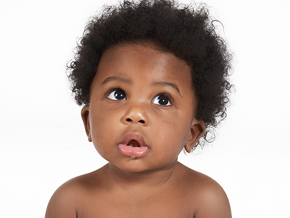
Baby Stool
Yes, this is all about your baby’s poop! The most important thing is to be able to identify abnormal stool to know when to see your baby’s doctor if the need arises.
Your baby’s bowel movements is affected by what and when you feed her and there’s a lot more you can tell or learn from poop.
Here are some neat tips to guide you:
Colour
It is normal for baby’s stool to vary in colour. This changes drastically over the days and weeks after birth.
The first stool your baby passes is called meconium. This is sticky, thick, and black. By the end of the first week, it quickly changes to a yellow-brown colour.
For breastfed babies it is quite normal for the stool to look seedy, runny, or even pasty. They also look more yellow compared to babies that are formula-fed. The seedy look is because of undigested milk fat and is quite normal.
When you need to act
You should be concerned if baby’s stool colour looks red, white or black. In all these cases, you need to visit a doctor for the appropriate medical attention.
Red stool: This may be due to small cuts on baby’s anus (anal fissures or haemorrhoids). It may also be an allergic reaction to a milk protein.
White, grey or clay coloured stool: This may be a problem with baby’s liver. It can also be a sign of jaundice and you need to contact the doctor immediately.
Black stool: This may be a sign of bleeding from the oesophagus or even blood swallowed from mum’s nipple. This blood travels down the tract and is passed out as stool.
Texture
For new-borns, it is common for the stool to have a mustard look or feel. As the weeks go by, the stool becomes more formed. If your baby is formula-fed, the stool is likely to be a little firmer and feel or look like peanut butter.
If your baby’s stool is very hard, it may be a sign of constipation. This may be caused by a medical problem and hence you need to visit the doctor.
Loose and watery stool
If baby’s stool is very loose and watery, it may indicate that baby is not absorbing nutrients as well as they should. This may also be because of a milk protein allergy or gastrointestinal infection. While these infections are usually viral, they can clear up by themselves without need for medication. You should still see the doctor if your new-born is dehydrated and becomes ill.
Stool Mucus
Infection or improper digestion may also result in mucus in baby’s stool. For babies that are formula-fed, this may be due to a formula their system disagrees with. Remember to contact your doctor if you notice this.
It is always a good idea to carry a diaper along when visiting the doctor or take pictures of baby’s stool to show how loose or hard they are.
While some parents like to feel baby’s stool, there is no need for this. Just pay attention to baby’s reactions as he/she passes stool, particularly in the first few months. If he/she continues to cry and struggles to pass stool, it may be a sign of a problem with her rectum and you should see the doctor.
Regularity
Most new-borns pass stool at least once or twice a day. As the days go by, this would increase; as much as 10 times a day by the end of week one. You shouldn’t be worried about how frequently they pass stool as long as their stool is soft and painless.
It’s also normal for breast fed babies to pass stool more often in the early days after birth, though this might be irregular. As the days go by, the amount of stool becomes consistent with the amount of breastmilk or formula given to baby.
Keep in mind that this is always not the case. If baby is not satisfied after feeding, isn’t growing properly and shows an increasingly protruding abdomen then you need to contact your doctor.
As baby grows and eats more in the first month, the amount of bowel movements is likely to reduce. There are days she may have no bowel movement at all. It’s ok if baby is growing healthily and doesn’t experience hard stools later on.
There are rare disorders which cause reduced or abnormal stool. If baby’s first stool takes longer than expected it is advisable to contact your doctor.
Smell
A new-born’s stool generally has very little odour. It is normal for their stool to become smellier as the days go by. This is because of the bacteria that begins to grow in their gut.
Formula-fed babies generally have a stronger smelling stool compared to breast-fed babies. Sometimes, inadequate absorption of nutrients may cause bad smelling stool.
When it comes to baby’s stool, there is a great deal of variation. As long as baby is growing properly and the colour and consistency of her stool is normal, then you shouldn’t be worried. If you are, then see your baby doctor for help.

















